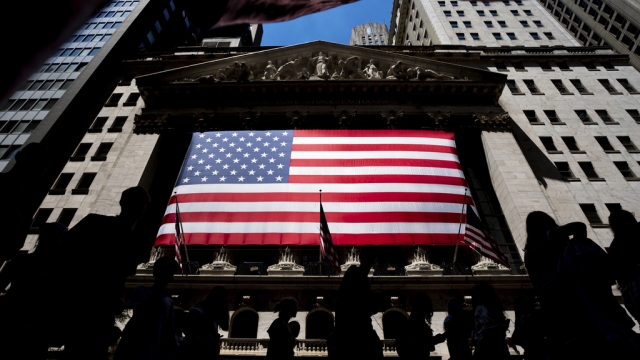In 2022, two quarters of negative economic growth made for financial news that was downright apocalyptic.
TV news was full of pessimistic voices, saying things like "A recession is well underway," "There is a possibility that we will have a recession," and "The U.S. is headed for a recession."
The U.S. GDP was down. Jobless claims were up. Home prices rose, and inflation remained elevated.
And now, a year later, where do things stand?
"Looking forward to now, one would think that a recession much larger than the small dip we had in the summer of 2022 would have already struck the US. But it hasn't," says Glenn Furton, an economist at MSU Denver.
Last quarter, real gross domestic product increased at an annual rate of 4.9%, according to the Bureau of Economic Analysis.
In September, inflation was at a relatively high 3.7%, but much lower than the almost nine percent that Americans experienced in summer 2022.
Wage gains, measured by the employment cost index, remain high at four percent over last year. And consumer spending grew by an annualized rate of almost five percent last quarter, shocking economists. Think cars, meals out at restaurants, clothing, and even concert tickets.
"The low unemployment rate, the strong jobs market, and the high spending rate—this recent report having been driven largely by consumer spending," says Furton. "And you've got, you know, people attending Taylor Swift concerts in droves and enough to even perhaps affect national GDP significantly."
But 48% of U.S. adults told Gallup in September that economic conditions were poor and plenty of economic data was worrisome.
SEE MORE: Biden Administration touts economic progress as APEC wraps up
The number of Americans living paycheck to paycheck? A whopping 63%, according to a lending tree and payments survey released in September.
Personal savings? Lower than it's been since the 2008 recession.
And the Federal Reserve has set interest rates higher than they've been in twenty years.
"The Fed may want to tighten policy further, which means further interest rate hikes, which could tip us into that recessionary period," says Furton. That could hurt low-income families the most.
"The wealthiest may not be so harmed by this," says Furton. "Of course, it's going to affect, you know, entrepreneurs and business owners. And that's not good. That could affect real economic growth in the long run."
So what's the big picture?
"Economic indicators are a Jackson Pollock painting of data points and trends," wrote economics writer Kyla Scanlon last summer. She coined a phrase for what we're in now: vibecession.
"The vibecession is this idea that there's a temporary decline in sentiment, despite the economic data feeling relatively ok," she said in a video.
That is relatively good data, but consumers are getting poor vibes.
"There's a lot of things to get excited about in the economy right now," she added. "But things still don't feel good, right?"
In fact, surveys show consumer sentiment is lower than at any time since 1980, according to the Economist.
Even stranger: the magazine created a computer model predicting the expected consumer sentiment given economic data like gas prices and unemployment.
For forty years, economic attitudes from surveys have followed what the model predicted. But since the pandemic? Attitudes are much worse than the model's prediction.
The magazine's conclusion? "Americans' opinions about the state of the economy have diverged from reality," it wrote.
So, if you're hearing good news about the economy but you still have your doubts, you're definitely not alone.
Trending stories at Scrippsnews.com



